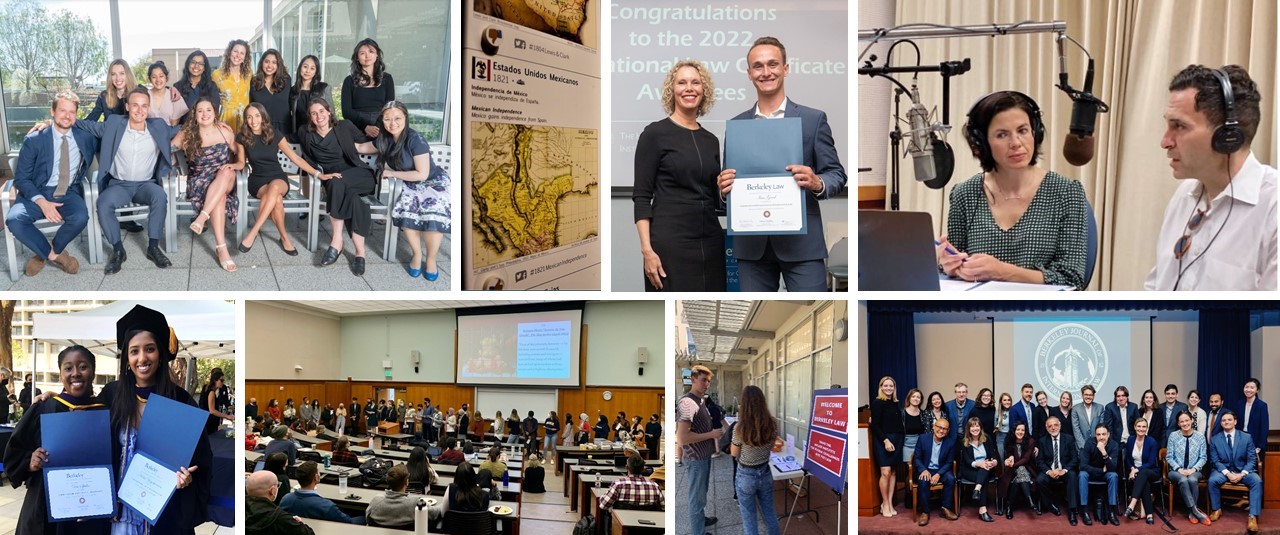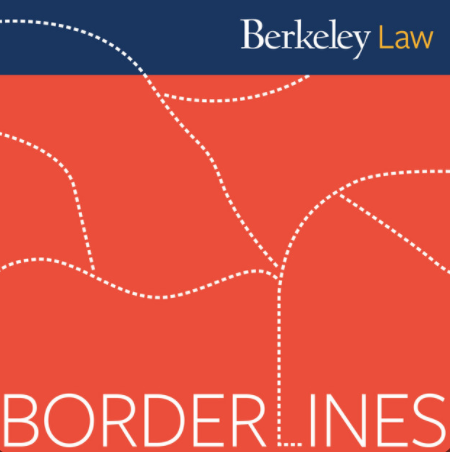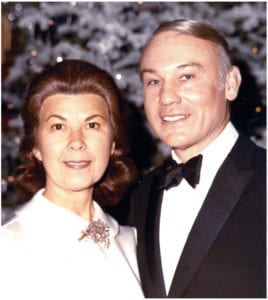
THE HONORABLE G. WILLIAM AND ARIADNA MILLER INSTITUTE FOR GLOBAL CHALLENGES AND THE LAW is an internationally-focused research and policy center at Berkeley Law. Through interdisciplinary collaborations and institutional partnerships, the Miller Institute addresses urgent challenges that demand innovative global approaches, including promoting the rule of law, climate and energy justice, anti-corruption, and human rights.
Our work is guided by Berkeley Law’s distinguished international and comparative law faculty and informed by the expertise of scholars and practitioners worldwide. The approach is collaborative, interdisciplinary, and strategic. Our initiatives and advocacy work target critical situations where we are uniquely equipped to promote lasting change.
The Miller Institute administers the Certificate of Specialization in International Law Program for Berkeley Law students that recognizes successful completion of a course of study focused on international law.
 Introducing Borderlines Podcast from Berkeley Law, a show about global problems in a world fragmented by national borders.
Introducing Borderlines Podcast from Berkeley Law, a show about global problems in a world fragmented by national borders.
Our host is Katerina Linos, Tragen Professor of International Law and Co-Director of the Miller Institute for Global Challenges and the Law. In each episode of Borderlines, Professor Linos invites experts to discuss cutting edge issues in international law. Listen and subscribe:
 Human Rights at a Crossroads:
Human Rights at a Crossroads:
Open Source Articles
The nature and scope of pressing human rights challenges should cause us to reevaluate whether our rights approaches to defending freedom should be revisited.
This moment calls into question the theories of change and working methods of international human rights. While the ultimate goal of the human rights movement to secure just societies is unassailable, is it equipped to do so? In this partnership between OpenGlobalRights and Berkeley Law’s Miller Institute for Global Challenges and the Law, several human rights scholars and practitioners explore this question and think critically and imaginatively about the future of the human rights movement.
Contributors to this series draw on their experiences as actors and observers of the human rights project to offer insights on a variety of ways that shifts within the geopolitical, institutional, and normative landscape challenge the movement. They consider how to frame the challenges we face—to what extent are these challenges of a different nature than in the past? Writers address human rights strategies and reconsider their theoretical foundations prompting questions about the utility of a rights-based approach that has been a mainstay of the movement. As authors pull back the frame, they share their thinking about where the movement should be headed and the extent to which we should preserve our traditions and the extent to which we need to innovate to meet the present moment. Coordinated by Professor Laurel E. Fletcher, Miller Institute Co-Director and Chancellor’s Clinical Professor of Law at UC Berkeley.
Read Human Rights at a Crossroads articles
Miller Institute Annual Report 2022-2023
Download Miller Institute Annual Report 2022-2023
Mailing List
If you would like to receive email notices and updates of our activities, please join our mailing list. Click here or send your name, affiliation, and email address to mgcl@law.berkeley.edu.
G. William and Ariadna Miller

The Miller Institute is named as a tribute to the Honorable G. William Miller (’52) and his wife Ariadna Miller.
A celebrated Berkeley Law alumnus, G. William Miller served as the US Secretary of the Treasury under President Carter and the 11th Chairman of the Federal Reserve. He was an officer in the US Coast Guard, and led a distinguished career in business and investment banking.
Miller was a lifelong supporter of Berkeley Law, serving on the school’s Campaign Cabinet. As national chairman of the Distinguished Professors Project in 1986, he helped raise $1.2 million to endow chairs honoring Berkeley Law professors. Miller was also the 1979 recipient of the Citation Award, the Berkeley Law Alumni Association’s highest honor, and was recognized with the UC Berkeley Foundation Trustee’s Citation in 1987.
He was deeply committed to enabling work to promote the rule of law as a means to ensure that nations share a set of values without sacrificing their individual cultures. The Miller Institute seeks to further his vision.